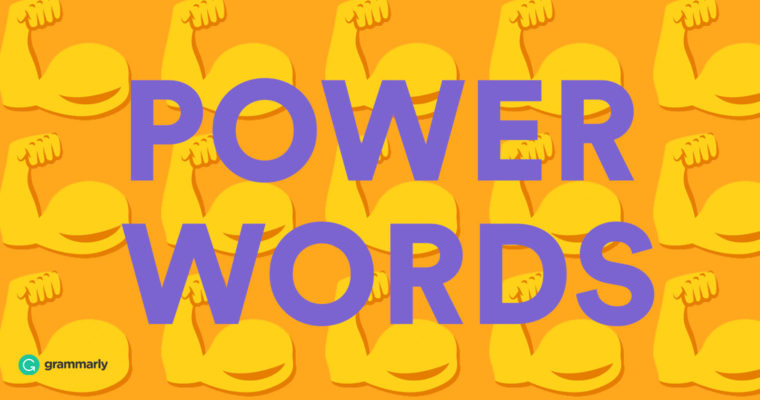
Are you confused about the difference between a curriculum vitae (CV) and a résumé? You’re not alone. They’re both used to apply for jobs, and on the surface they look similar.
Many people even use these terms interchangeably, but they actually have different meanings and serve different purposes. In this guide, we’ll explore the differences between a CV and a résumé to help you understand which one to use.
What is a CV vs. résumé?
A résumé is a short document detailing relevant experience and skills for a specific job or internship. A CV is a longer document that provides a comprehensive overview of one’s professional and academic achievements.
CVs are commonly used to apply for academic positions, grants, fellowships, and jobs in the European Union and the United Kingdom. Résumés are tailored to each job application and are most often used to apply for jobs in the United States. A CV may include a photo, but a résumé shouldn’t include a photo unless specifically requested.
Here are the main differences between a CV and a résumé at a glance.
Résumé and CV length
Since a résumé is tailored to each job you’re applying for, it should be concise and brief—typically around one page. A CV, on the other hand, is an in-depth look at your entire educational and employment history. There’s no length limit for CVs, but they’re about two pages long on average.
Career type
Academic, medical, and legal careers require CVs for job applications in the US. If you’re working in one of these professions, you’ll definitely use a CV. Most other careers use a résumé.
Location
Most job applications in the EU request a CV rather than a résumé. If you’re applying for a job in one of those countries or if you live in the EU, you’ll need to use a CV. If you’re in the US, you’ll probably use a résumé instead.
Photos
CVs can have photos. Depending on your profession, you may want to include a photo on your CV. Photos are rarely required, though. You should not include a photo on a résumé.
Specificity
Résumés should be customized for each job application with action words that highlight the most relevant work experience and skills for that specific job description. CVs can be a broader overview including all or most of your experience if you’re applying for an academic, medical, or legal position. While CVs may be more tailored for job applications in the EU, they aren’t required to be as brief as résumés.
What is a CV?
A curriculum vitae is a document used to showcase one’s education, work experience, achievements, skills, and other relevant information to potential employers. It’s pronounced kuh-RIK-yuh-luhm VEE-tay, and it means “course of life” in Latin. It is used when applying for internships, academic programs, or jobs in the European Union.
A CV typically includes the following sections:
- Header: Name, address, phone number, email, and other contact information
- Professional summary: A short statement summarizing your experience, skills, and career goals
- Education: Information about your educational background, including degrees earned, published work, institutions attended, and relevant coursework
- Work experience: A detailed description of your past and current employment, including job titles, dates of employment, and key responsibilities and achievements
- Skills: An overview of skills relevant to the job opening
What is a résumé?
A résumé is a one-page document that summarizes an individual’s work experience, education, skills, and achievements. The word résumé means “summary” in French. It’s typically used when applying for a job or internship and should be tailored to each application.
A typical résumé includes the following sections:
- Résumé header: Your name, address, phone number, and email
- Professional summary/objective statement: A brief statement summarizing your career goals and highlighting your related skills and experience. This paragraph can also be used to explain gaps between experiences.
- Work experience: A list of relevant previous jobs and work experience, usually in reverse chronological order (starting with your most recent job)
- Education: Educational background, including your degree(s), school name(s), and graduation date(s)
- Skills: A list of suitable skills for the specific job you’re applying for
When to use a CV vs. résumé:
In the United States, you’ll probably use a résumé more than a CV unless you’re in an academic career. In the European Union, CVs are expected instead. Here are a few examples of when you might use a CV and when you should use a résumé.
A CV is typically used when applying for the following:
- Academic positions
- Research opportunities
- Positions in the European Union
- Certain types of jobs (such as medical or legal professions)
You should use a résumé in the following situations:
- Applying for a job
- Networking with professionals in your field
- Attending career fairs
CV vs. résumé example
For a deeper understanding of the difference between a CV and a résumé, let’s look at a couple of examples.
CV example
Here’s an example of a CV used for a medical career:
Eric Williams456 Phillips Street | Portland, OR 97255 | Cell: 505-555-7558 | Pager: 505-555-4767 | ewilliams@example.com |
EducationM.D., University of Iowa College of Medicine, Iowa City, IAAugust 2021-Present | Anticipated May 2026 B.A., Biology, Simpson College, Indianola, IAAugust 2017-May 2021 EMT—Basic, Mercy College of Health Sciences, Des Moines, IASeptember 2018-January 2019 Professional ExperienceUniversity of Iowa Hospitals, Pathology Externship, Des Moines, IASeptember 2022-Present Rotated on surgical pathology, autopsy, and electives, including hematopathology, cytopathology, and immunopathology to gain fundamental experience in pathology Boone Fire Department, EMT, Boone, IAFebruary 2019-July 2021 Served as a per diem emergency medical technician for the Boone Fire Department during the summer. Teaching ExperienceUniversity of Iowa College of Medicine, Tutor, Iowa City, IASeptember 2022-Present Tutored second-year medical students in their pathology course, and in their preparation for the USMLE Step 1 exam. Science Center of Iowa, Summer Intern, Des Moines, IAMay 2021-August 2021 Taught a variety of science subjects in a fun environment to children aged 8-13. Professional ActivitiesAmerican Medical Student Association, PresidentJanuary 2022-Present Responsibilities included arranging an instrument sale for first-year medical students, and generating interest for and arranging transportation and lodging for the national and regional conventions. Vital Signs—Student Newspaper, EditorNovember 2022-Present Writer/editor of the “Profiles” column. Highlighting medical students, faculty, and staff alongside the Alumni Association. |
Professional Memberships
American Medical Student Association
American Medical Association
Academic Awards
Doft Scholar, 2021-2022
Honorable Mention, Mathematical Contest in Modeling, 2023
President’s List, 2019
Dean’s List, 2018
Outstanding Performer, Freshman in Biology, 2017
Résumé example
Here’s an example of a résumé for a content director:
Emily LiamsonContent Director I use branding, social media, and content
|
123 Graham Street
Boston, MA 02134 (617) 456-7890 emily.liamson@example.com |
EXPERIENCESysdig, Boston, MA—Head of Brand & Content MarketingFebruary 2022-PRESENT Developed a brand strategy, compelling
company narrative, and messaging hierarchies
to create a loyal community. Ran 5 social channels and grew 200% YOY
to 2.7M subscribers across platforms. Led brand testing and development to inform strategies. Lynx, Manhattan, NY—Lead Content StrategistJuly 2020-December 2022 Built a robust content strategy and
framework to drive 235K visitors per month via organic traffic with a staff of 5. Created a partner marketing matrix and
thought leadership program to expand
reach and authority. Veva Systems, New York, NY —Content WriterMay 2018-March 2020 Created and refreshed outdated blog posts
to increase organic traffic by 30% YOY. Crafted briefs and conducted research based on overarching SEO strategy. EDUCATIONNew York University, New York, NY—B.S., Business MarketingAugust 2012-May 2016 The Stern School of Business Marketing concentration. Minors in philosophy and psychology. |
SKILLS
AWARDS
LANGUAGES
|






